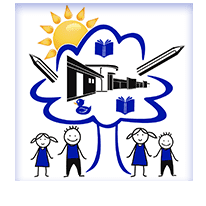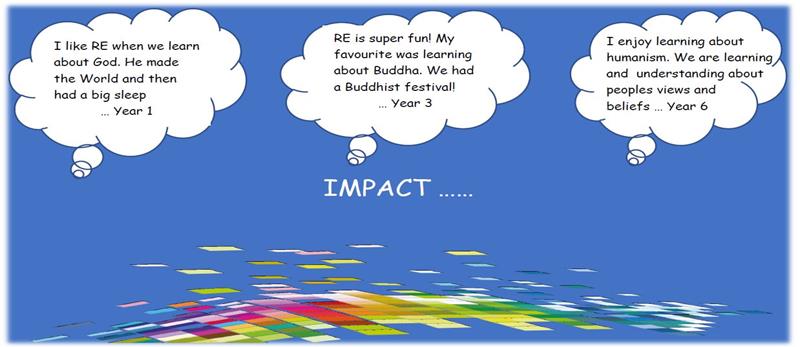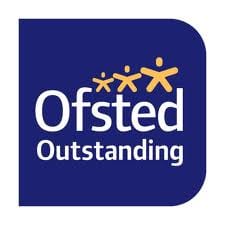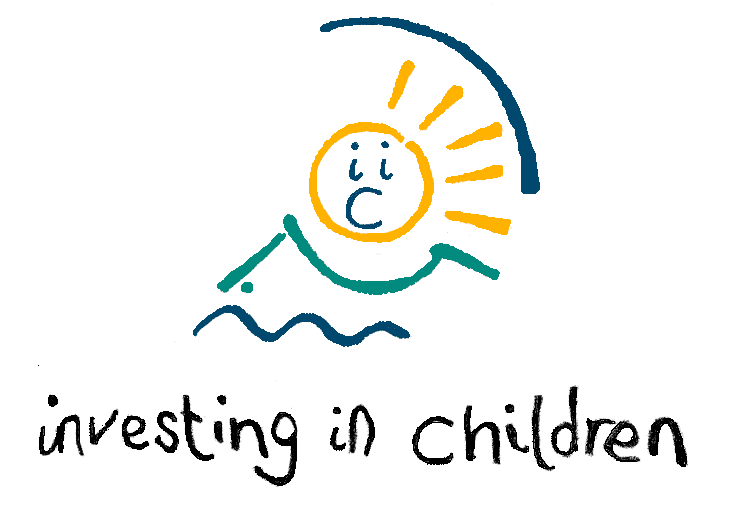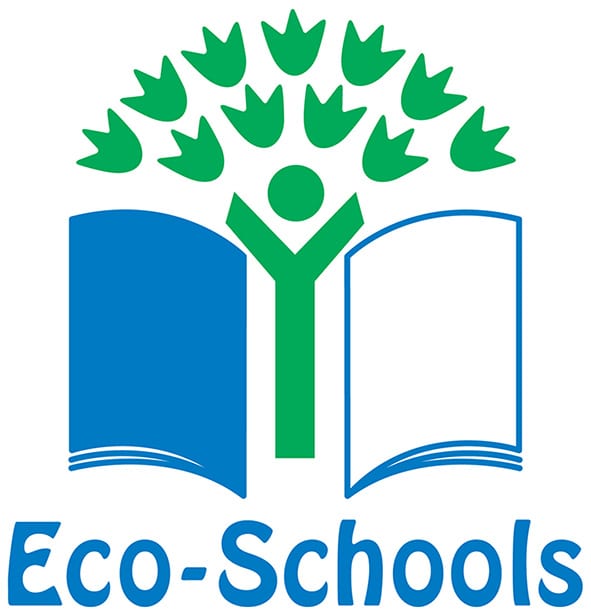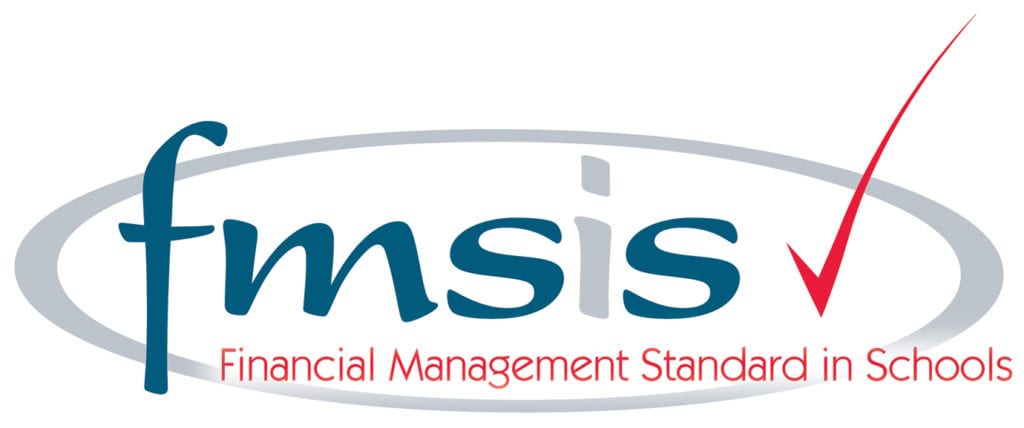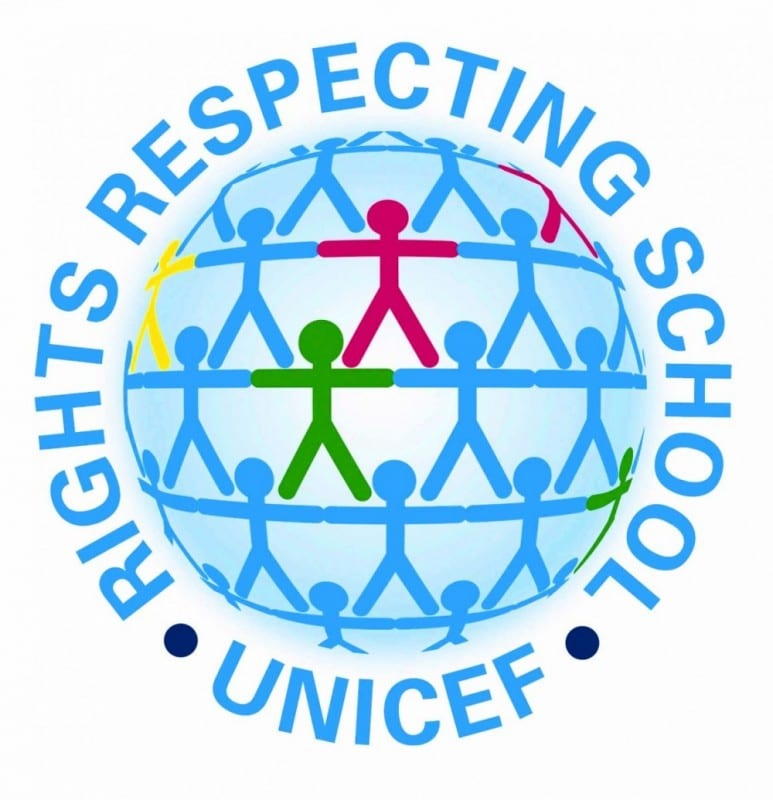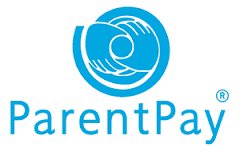At Kirk Merrington Primary School we aim to provide children with the knowledge and understanding they need about a wide range of religions in order to promote respect and tolerance of other members of our community and the wider world. We want our children to challenge stereotypes of religions, cultures, beliefs, and values of others that may be different to those that they have themselves.
Our Religious Education curriculum provides our children with the opportunity to celebrate and explore diversity in a positive manner. We believe that it is crucial that our children develop their self-awareness, respect for others, open-mindedness, appreciation and wonder of the world in which we live. We will equip them with the skills they need to understand their own sense of identity and belonging in our society.
Religious Education is studied throughout our school, following the Durham LA Agreed Syllabus. Topics cover the main world religions of Christianity, Buddhism, Hinduism, Judaism and Islam. The children consider the four key concepts of belief, impact of belief, authority and expressions of belief throughout these topics, leading to a wide understanding of the religions taught. They engage in well-resourced and differentiated lessons, developing their knowledge and understanding, critical thinking and personal reflection. In Early Years the children begin to encounter and explore some aspects of religious beliefs and practices, particularly focusing on belonging and special places, people, books, times and objects. Each half-termly unit in Key Stage 1 and 2 investigates a specific question. In Key Stage 1 the children are introduced to the main beliefs of Christianity and Buddhism. In Key Stage 2 the children then develop their knowledge and understanding of Christianity and Buddhism and also consider the beliefs and main features of Hinduism, Judaism and Islam. Also, the children in Key Stage 2 are given the opportunity to compare the similarities and differences between the main religions, reflecting upon which of the values they hold themselves.
The curriculum is enriched by visits to our local church, Durham Cathedral and other places of worship. We also endeavour to invite specialist visitors into school to share how they express their beliefs throughout worship and practices or hold virtual experiences.
“We may have different religions, different languages, different coloured skin, but we all belong to one human race.” – Kofi Annan
Intent
Religious Education is an academically rigorous subject which makes a distinctive contribution to pupils’ overall knowledge. Over their time at Kirk Merrington, children are involved in learning, which provokes challenging questions about meaning and purpose in life, issues of right and wrong and what it means to be human. They learn to interpret, analyse, evaluate and critically respond to the claims that religious and non-religious worldviews make. Through well-sequenced and challenging Religious Education lessons, children are given opportunities to develop as articulate, thoughtful, respectful, well rounded global citizens. Staff are provided with the training and knowledge which is necessary to develop the RE curriculum. Religious Education at Kirk Merrington offers opportunities for children to reflect personally and to examine the significance of their learning in relation to themselves and others. Through enquiry based teaching and learning, children are able to explore their own beliefs (whether they are religious or not) and to develop their own sense of identity and belonging. The right of others to hold different beliefs and values is also promoted through discussion and collaborative learning.
Carefully planned visits, online content and community links help to extend the learning beyond the classroom and give children a real-life sense of people’s beliefs, the many ways in which people express their belief and the impact of those beliefs. This in turn gives children the confidence to challenge stereotypes and develop an understanding of the difference between fact and opinion. Religious Education lessons at Kirk Merrington are differentiated to allow all pupils to take part. Group work and adult support allow for inclusivity and supports the development of knowledge and understanding and critical thinking. The development of this knowledge, understanding and critical thinking assists in developing a growth mindset, in line with the school mission statement, developing personal, spiritual and moral values with respect for other races, religions and cultures. Enabling children to understand the world in which they live and the interdependence of individuals, groups and nations- developing successful citizens for the future. With an ethos of mutual respect and co-operation, whilst developing the capacity to become independent learners. Religious Education at Kirk Merrington offers opportunities to develop a love of reading through the promotion of topic-based texts and the exploration of language, meaning and symbolism across the core religions as outlined in the Durham Agreed Syllabus. Enquiry based learning allows children to carry out research in varying ways. Use of religious and non-religious literature using key specific terminology to enrich vocabulary is a key aspect of children’s learning in religious education.
Development of key knowledge in Religious Education helps pupils deal positively with controversial issues and challenge prejudice. It makes a significant contribution to the active promotion of mutual respect and tolerance, encourages them to celebrate individuality and develops self-esteem. The supportive, inclusive culture within the learning environment enables children to express their feelings and to develop informed opinions and views of the world.
Implementation
We use the Durham Agreed Syllabus which was revised in 2020 for the basis of our Curriculum. The syllabus encourages enquiry-based learning and provides a developmental approach to RE which is coherent and systematic. Continuity and progression are achieved by building on the knowledge, understanding and skills that pupils gain across and between key stages. The Christian festivals of Christmas and Easter are covered by a whole school approach where children share findings in assembly time. Teachers have some flexibility to move questions that fit in with other areas of the curriculum providing the sequential progression is not affected. We encourage our children to have as many real-life experiences and visitors throughout the year for a wider knowledge and understanding.
The curriculum covers the RE Concepts of Belief, Authority, Expressions of Belief and Impact of Belief. Each element is driven by a key question which is a basis for enquiry-based learning where children are provided opportunities to engage explore and evaluate their learning.
Impact
Children at our school have a wide knowledge and understanding of different religions and cultures. They can ask and answer challenging questions and know that not all questions will have answers. Our children are respectful of all faiths and beliefs and can reflect upon their own beliefs. Religious Education contributes to our children becoming culturally aware of theirs and others cultural heritage. Through studying religious identity and belonging they are keen to make a positive and helpful contribution to their own community.
